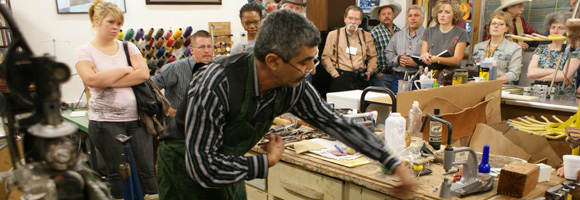
Maybe it's the smell of pencils and college-ruled paper in the air, but politicians in the U.S. are going positively education-crazy. Arne Duncan, education secretary, gave an interview and speech disclosing radical overhauls of our current "No Child Left Behind" policy. President Obama urged students to stay in school, and work hard to learn the skills that would help them compete in a global market. There is good reason that these important people are spending time and effort looking into the affairs of children. Simply put, we have problems to large, numerous, and long-term to be dealt with by the current generation of workers. The question is, how can you train a generation to fabricate a new future without giving them the tools of fabrication?
You may have read that Dr. Norman Borlaug passed away over the weekend. He was an incredible scientist, and gave modern agriculture (and society) the core of technologies that allowed it to grow into what it is today. This afternoon, I was emailed this message from the Breakthrough Institute, to who's newsletter I subscribe. I thought that this email demonstrated a number of key errors and assumptions that business leaders make about what sustainability means, and I thought it might be useful to publish my reply here, as well as on their site. I would love to hear reactions, or additional suggestions in the comments. Below is my response email.
Michael-
Thanks for the kind words for Dr. Borlaug's work. Certainly, there is little doubt that he is a hero when you tally all the human lives that the green revolution bettered, and weigh them against the consequences of changing our direction of development toward modern assisted, monocultural agriculture. And it is at the very least, naive for the environmental movement to demonize modern technology (on the internet, and in offset printed books, no less!)
But the real issue that your email -- and frankly, the entire platform that you and Ted stand on -- neglect to mention that while individual technologies never remain standard for very long, they tend to build on one another.







